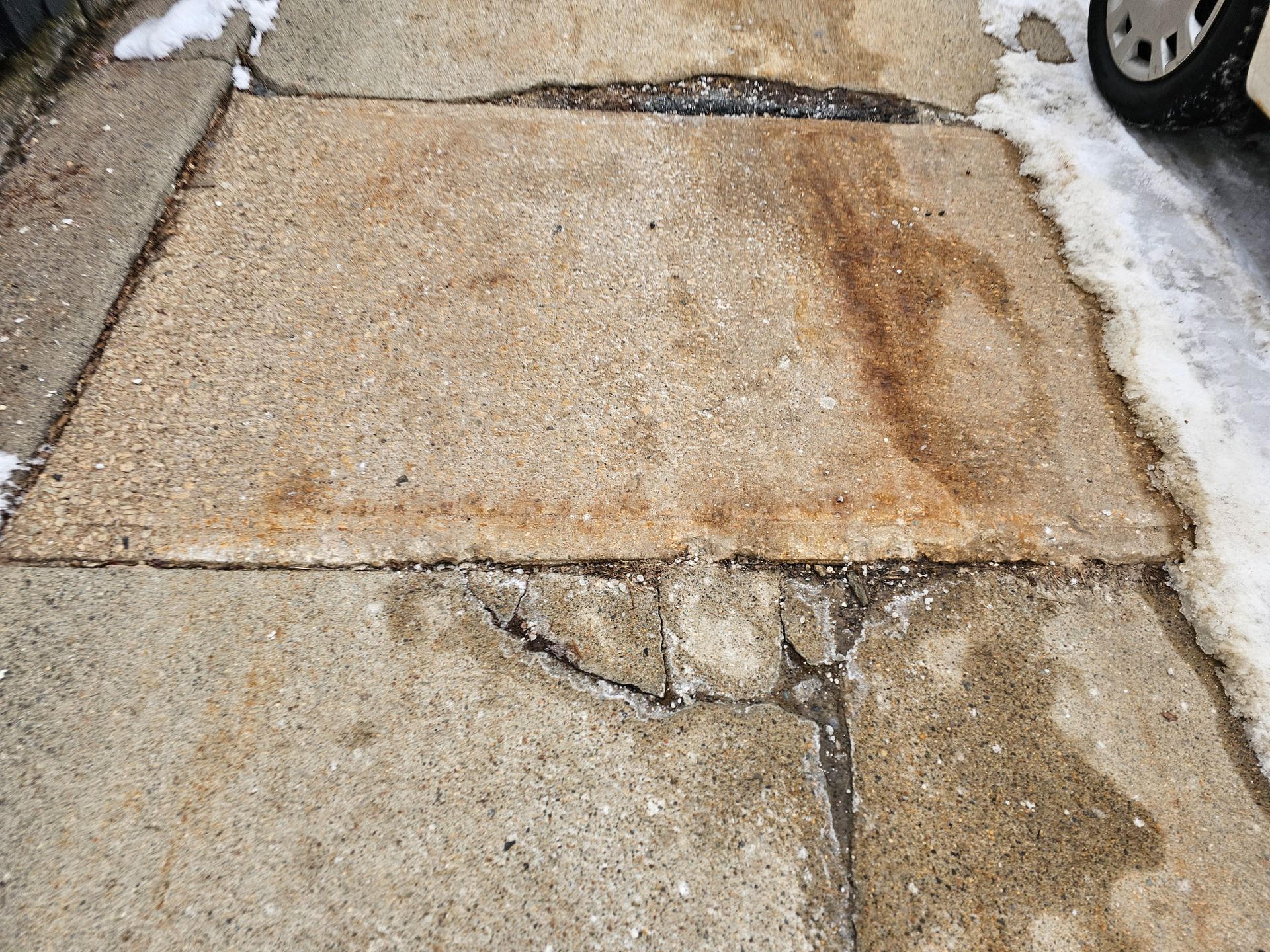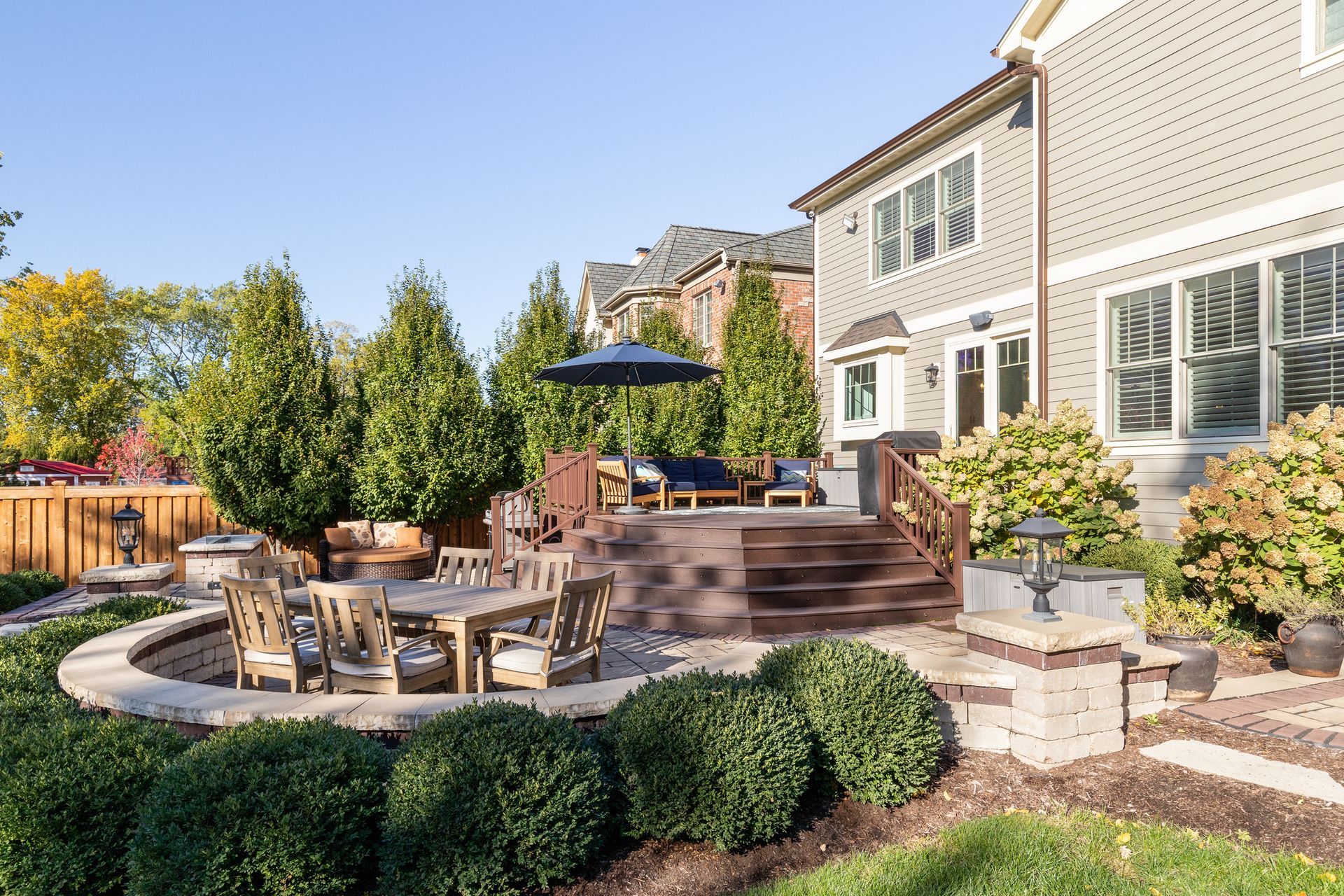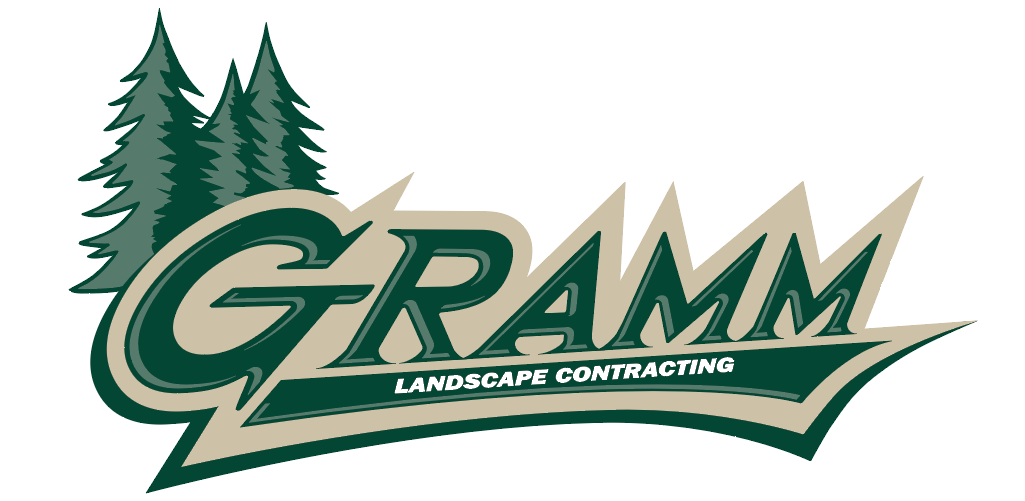Concrete Pavers vs. Natural Stone Patios: Which One is Right for You?
Designing a new patio is an exciting step in transforming your outdoor space. Whether you're planning a cozy backyard escape or a spacious area for entertaining, the materials you choose will play a critical role in how your patio looks, feels, and holds up over time. For many homeowners, the decision often comes down to two popular options: concrete pavers or natural stone.
At Gramm Outdoor Contracting, we excel constructing at a variety of patio types , and we know there's no one-size-fits-all answer. Both concrete paver and natural stone patios bring unique advantages to the table along with a few trade-offs. So, how do you choose the right one for your project?
In this guide, we will explain the main differences between these two hardscaping solutions, helping you understand what works best for your home's style, budget, and long-term goals.
The Right Patio Material for Your Outdoor Space
When you start planning a patio project, there's more to consider than looks. Your lifestyle, local climate, long-term maintenance expectations, and budget all factor into the decision. Some homeowners are drawn to the uniformity of concrete pavers, while others love the natural beauty and character of stone. Each option has its place—and understanding how they perform in different situations can help you make a decision you'll feel confident about.
Durability and Longevity in Real-world Conditions
Outdoor patios are constantly exposed to the weather, and durability is a key concern especially in areas like Western Pennsylvania, where we deal with hot summers, freezing winters, and everything in between.
Concrete pavers are designed to be tough. They're manufactured to uniform standards, which means they often resist cracking and shifting better than poured concrete slabs. If a paver does get damaged, the fix is usually straightforward: remove and replace the individual piece. This makes repairs simple and keeps your patio looking fresh for years.
Natural stone, on the other hand, offers incredible strength that comes straight from the earth. Materials like flagstone, slate, or granite have stood the test of time for centuries. That said, not all stones are created equal—softer stones like limestone may wear faster or be more susceptible to chipping in high-traffic areas. But when appropriately installed, a natural stone patio can easily last decades with minimal issues.
Both options can perform well over time, but if easy repairs and uniform wear are essential to you, pavers might be the more practical choice. If you're aiming for a long-lasting investment that ages gracefully, natural stone delivers timeless appeal and lasting performance.
Pavers VS. Natural Stone: Style Matters
Of course, how your patio looks is often one of the most significant factors in your decision. After all, this is a space where you'll relax, host gatherings, and enjoy your outdoor surroundings.
Natural stone has an undeniable charm. Each piece is stunning and unique in color, texture, and shape, giving the finished patio a more organic and one-of-a-kind appearance. It's the go-to choice for rustic, classic, or upscale designs where natural beauty is the priority. From warm sandstone tones to the cool blues and grays of Pennsylvania bluestone, the range of options is impressive and sophisticated.
Concrete pavers offer something different versatility. Because they're manufactured, they come in a wide array of colors, shapes, and patterns. Want a herringbone pattern that mimics old-world brick? Done. Do you prefer a clean, minimalist design for a modern space? That's easily achieved with sleek, square pavers in muted tones. Pavers can even mimic the look of natural stone if you're drawn to that aesthetic but want a more budget-friendly option.
In the end, your design goals will help guide you. If you're going for a natural, earthy vibe with lots of texture and variation, natural stone might be the way to go. If you're focused on symmetry, color control, or a contemporary feel, concrete pavers can deliver stunning results.
Comparing the Costs: Short-Term and Long-Term
Budget is always a big part of any project, and understanding the cost differences between these materials will help you plan accordingly.
Concrete pavers are typically the more affordable option, both in terms of material and labor. This makes them an excellent choice for larger patios or for homeowners who want to stretch their budget without sacrificing style.
Natural stone comes with a higher upfront price tag. The stones themselves are more expensive, and because of their irregular shapes and sizes, installation takes more time and expertise. Cutting and fitting the stone can be labor-intensive, especially if you're aiming for a seamless or intricate layout.
But the cost isn't just about the initial installation—long-term expenses matter, too. Concrete pavers may require occasional sealing or joint sand replacement. While individual pavers are easy to swap out, maintenance can add up if the patio isn't installed or maintained properly. Natural stone, though more durable in some ways, might need sealing depending on the type of stone and exposure, mainly to prevent stains or moisture absorption.
If you want a great-looking patio without a hefty investment, concrete pavers are a wise choice. If you're willing to invest more upfront for a luxurious, enduring surface, natural stone offers exceptional value over time.
Maintenance Realities: What to Expect Year After Year
No matter which material you choose, your patio will need some level of upkeep to stay in great shape.
Concrete pavers usually benefit from sealing every few years to maintain their color and protect against stains. Weeds can sometimes grow between the joints, but using polymeric sand or sealants during installation helps prevent this. If a paver shifts or cracks, it's easy to pop it out and replace it without disturbing the rest of the patio.
Natural stone tends to be more forgiving when it comes to minor wear and tear. It weathers beautifully, often developing a soft patina over time. Some stones—particularly porous ones like sandstone or limestone—may need sealing to guard against staining, especially if your patio is near trees, grills, or outdoor kitchens. Cleaning is usually simple with water and a soft brush, but harsher chemicals should be avoided to protect the stone's surface.
In general, both options are manageable with regular maintenance, but natural stone may offer a bit more resilience in the long run—assuming the right type is chosen and installed correctly.
Why Professional Installation Matters
When it comes to building a patio, installation is just as important as the materials you choose. A well-installed patio not only looks better but also performs better—resisting shifting, cracking, and drainage issues over time. While some homeowners may consider tackling a patio as a DIY project, it's essential to understand the complexity involved and why hiring a professional often leads to better, longer-lasting results.
Concrete pavers are often seen as more manageable for DIY installation due to their consistent size and shape. However, even with pavers, proper base preparation, leveling, and joint filling are essential. Skipping or misjudging any of these steps can result in uneven surfaces, poor drainage, or premature wear. What seems like a straightforward project can quickly become more labor-intensive and technically demanding than expected.
Natural stone, on the other hand, is rarely recommended for DIY installation. Because each piece varies in size and thickness, fitting and leveling them requires skill, specialized tools, and a strong eye for design. Creating a stable, seamless surface out of irregular stones is an art in itself—one best handled by experienced hardscaping professionals.
In both cases, professional installation brings significant benefits. Experts know how to grade the area for water runoff properly, compact the base layers to prevent future settling, and align patterns or stone layouts for a cohesive, polished appearance. The result is a patio that not only looks great but also stands the test of time.
While DIY projects can be rewarding, patios are a long-term investment in your property. Trusting a professional ensures that investment pays off—with fewer headaches, reduced maintenance, and a flawless finish you'll enjoy for years to come.
Installing Patio Materials to Meet Your Goals
Each material shines in different scenarios. Here are a few examples to help you narrow things down:
Concrete pavers are a great fit if you:
- Want a clean, modern look with lots of pattern and color choices
- Are you working within a specific budget
- Need a quick installation timeline
- Prefer a material that's easy to repair or update over time
- Natural stone is ideal if you:
- Are aiming for a timeless, elegant design
- Appreciate natural variation and organic textures
- Are you building a high-end or rustic outdoor space
- Don't mind investing more for lasting beauty and character.
Choosing Gramm Outdoor Contracting For Patio Installation
There's no wrong choice—just the one that best aligns with your needs and preferences. Concrete pavers offer flexibility, affordability, and a wide range of design possibilities. Natural stone brings a level of richness and individuality that's hard to match.
If you're still unsure which direction to take, Gramm Outdoor Contracting is here to help. Our team has years of experience designing and installing patios that are built to last and tailored to fit your space and style. Whether you prefer the precision of concrete pavers or the natural beauty of stone, we'll walk you through the process and help bring your vision to life.
Ready to start your patio project? Contact us today for a consultation and explore the best hardscaping solutions for your home.

Author: Jake Gramm
Owner & Founder of Gramm Outdoor Contracting, Jake leads crew of experts in hardscaping and landscaping installations providing top notch work to the Pittsburgh area.
You might also like



